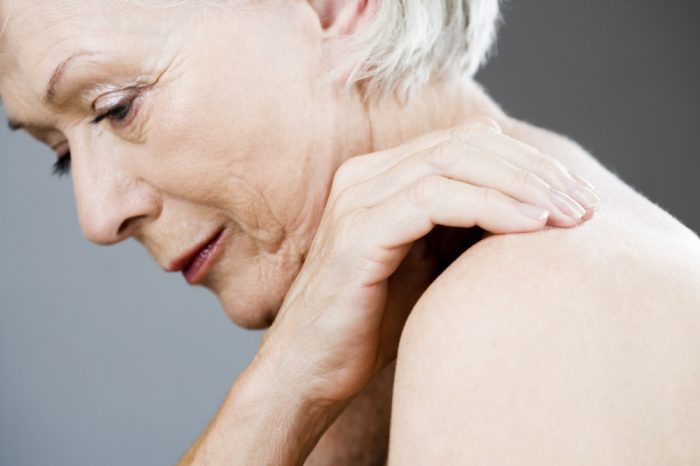Cannabis might be the geriatric medicine of choice.
If you didn’t get the memo twenty years ago, then you can always start now. There’s no denying it, cannabis legalization is spreading far and wide. Now is the perfect time to experiment responsibly with cannabis to help enhance our lives collectively. The medicinal benefits of the plant are extensive. But, while science still plays catch up, what’s clear for now is that cannabis can effectively treat many of the afflictions people suffer from as they age. Be it pain, insomnia, or relaxation, cannabis could be, in many ways, the ideal geriatric medicine.
Cannabis as Geriatric Medicine
When it comes to cannabis and geriatric medicine, the evidence backing its use is strong in several areas. Medical professionals have begun to align themselves more and more to the benefits of cannabis. As a result, there’s little debate with regard to how helpful cannabis can be in helping ease some of the transition into old age. Whether it’s for pain relief, sleep enhancement or deep relaxation within the body, cannabis has become the geriatric medicine of choice for many.

Cannabis For Pain Treatment?
Pain relief is often the motivating factor for the elderly to try cannabis for the first time. It’s the area that’s backed by most research. This is due to the fact that many millions of people experience chronic pain as they age.
When pain is persistent, it ultimately loses its value as a survival mechanism. The sensation of pain forms in the brain, and is the result of the coordinated activation of brain cells—something a study from Florida State University (2012), demonstrated.
When targeting pain, a medicine or a drug can do one of two things: Target the underlying pain signals at the site by blocking the inflammation or reduce pain signals. The beauty of medicinal cannabis is that it targets both of these.
How Does Cannabis Interact with the Body?
THC activates the CB1 receptors and also increases opioid receptor activation in the brain. CBD, on the other hand, contributes to the production of the endogenous cannabinoid anandamide which closely reflects the properties of THC. In addition, CBD also affects GABA levels in the brain. This is an inhibitory neurotransmitter that enhances relaxation. A U.K. study published by the American College of Neuropsychopharmacology (2012) investigated where a 600mg dose of CBD was found to increase GABA in the subject’s brains.
Tolerance and Pain Treatment
As patients work more frequently with cannabis as a medicine for pain relief, they begin to gradually develop a tolerance to the intoxicating effects. The good news is that the therapeutic dose doesn’t change, just the psychoactive effects. The same cannot be said for opioids that can actually make a patient more sensitive to pain over time.
Far less addictive, and with no potential for overdosing, cannabis is clearly much safer than pervasive and dangerously addictive opiates. In recent times, cannabis use among seniors has even helped many get off strong NSAID’s for pain relief.

Can You Use Cannabis to Treat Insomnia?
As people age, their sleep tends to deteriorate. While science doesn’t have a definitive answer as to why, many believe melatonin may play a part. A Polish study, published in Experimental Gerontology (2004), found that “melatonin levels decline gradually over the life-span which could relate to lowered sleep efficacy, very often associated with advancing age.”
Rather than counting sheep as they try to sleep, many patients try cannabis to help regulate things a little more. A Californian study, published in Current Psychiatry Reports (2017), claimed that, “CBD may hold promise for REM sleep behavior disorder and excessive daytime sleepiness”. In addition, a study, published in Sleep Medicine Review (2008), found that THC was able to reduce REM time. This helps in two ways. First, for patients suffering from PTSD, it means less time in dreams that could lead to terrors. It also assists patients who regularly awake during the intense REM stage of sleep. For the latter, long REM means less overall restorative sleep.
To enhance sleep with cannabis, the evidence suggests a hybrid strain that has a balanced ratio of CBD:THC. Experiment with what works for you. Buy from a source formulated for high bioavailability, such as an oil taken sublingually.

Cannabis as a Relaxant
Cannabis acts as a muscle relaxant. This is a quality that makes it effective in conditions ranging from priming one for restful sleep to treatment for Parkinson’s tremors. And no matter where you fall in that spectrum, there’s no doubt all could benefit from being more relaxed.
Stress is a killer. There can be little doubt that many unpleasant symptoms of aging are the direct result of stress earlier in life. A study carried out at the University of Chicago (2017) on the matter found that “THC at low doses reduced stress, while higher doses had the opposite effect.” In the study, patients were medicated with 7.5mg or 12.5mg of THC. The group dosed with 7.5mg reported “significantly reduced self-reported subjective distress.” It is thought that some subjects experience anxiety with high doses of THC.
With that in mind, perhaps it’s all the more reason to low dose with THC in the evening. It may benefit your sleep, ease lingering pains, and allow you to let go of all that tension and relax. Again, when using cannabis to help with the ailments of aging, experiment to find what works for you. And if unsure about any effects of these cannabinoids, consult a medical professional prior to consumption.





